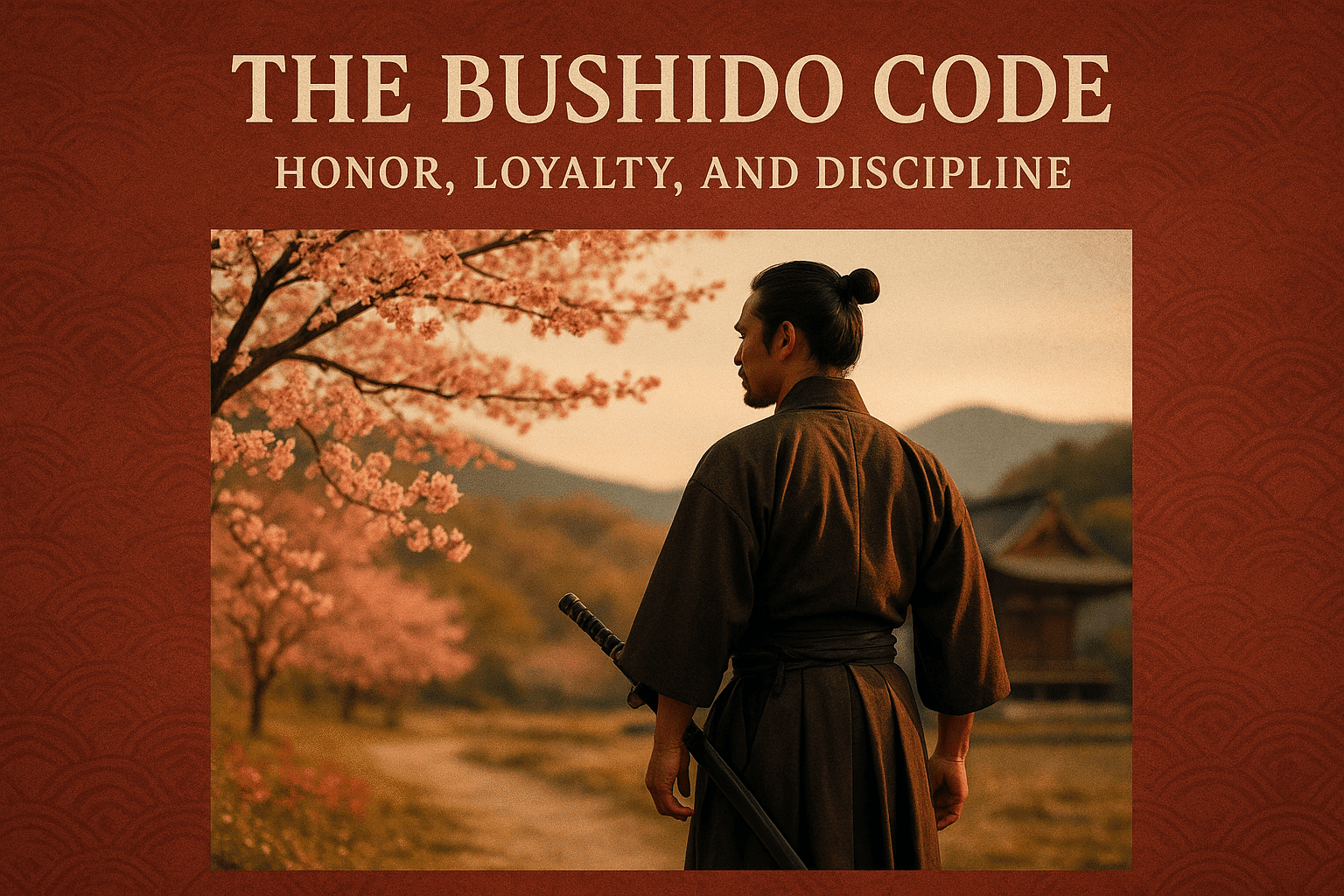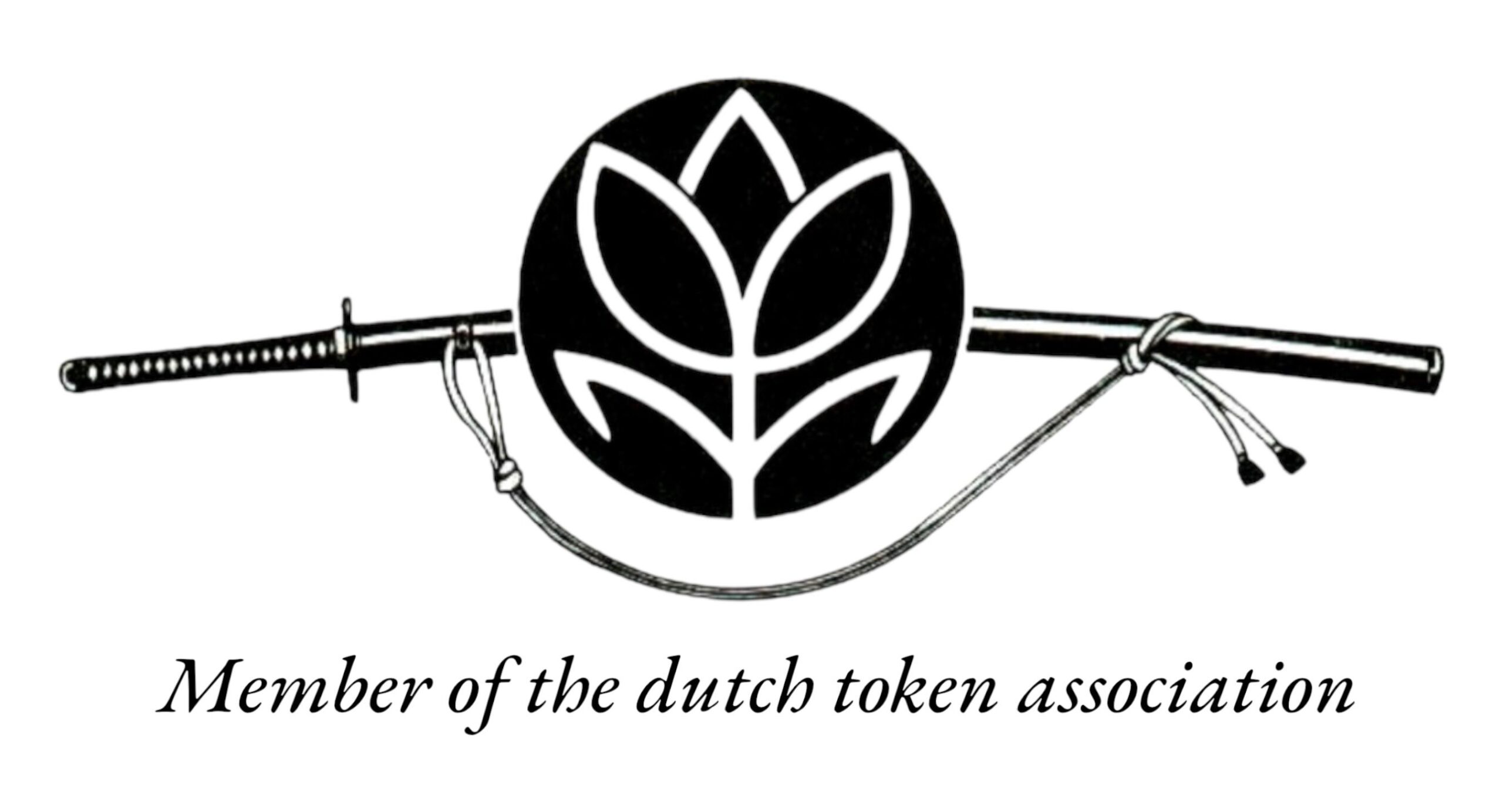Introduction: A Quiet Strength
In a world often consumed by noise and speed, the Bushido code endures as a quiet yet unshakable force. Originating from the samurai of feudal Japan, Bushido—meaning “the way of the warrior”—embodies a philosophy built not on bluster, but on calm resolve, personal integrity, and an unyielding internal compass.
At its heart lie three enduring virtues: honor, loyalty, and discipline. These are not lofty or abstract ideals reserved for ancient swordsmen but timeless principles that continue to inspire purposeful living. Rooted in simplicity and guided by silent strength, the Bushido code offers a reminder that true power lies not in domination, but in dignity and self-mastery.
Origins of Bushido
Bushido, meaning “the way of the warrior,” traces its roots to the turbulent heart of feudal Japan, emerging as a moral and ethical code that guided the samurai class. Its development was not the result of a single moment or decree, but rather a gradual shaping influenced by centuries of military conflict, social order, and spiritual integration.
As early as the Heian period (794–1185), samurai began to rise in both prominence and responsibility, eventually becoming the backbone of Japan’s military and political spheres. With power came the need for an ethical compass—something to define how a warrior should live, fight, and die. It was during the Kamakura period (1185–1333) that the foundational ethos of Bushido began to crystallize around loyalty to one’s lord (daimyo), valor in battle, and personal honor.
Philosophical and religious traditions deeply influenced Bushido’s evolution. Zen Buddhism introduced the ideals of inner stillness, resilience, and the acceptance of death—allowing samurai to face mortality with serenity and purpose. From Confucianism came the importance of loyalty, filial piety, and a clearly defined social hierarchy, reinforcing the samurai’s duty not just to their lords, but to society as a whole. Shintoism, deeply ingrained in Japanese culture, emphasized purity, harmony with nature, and reverence for ancestors, embedding spiritual honor into the heart of the warrior’s code.
Together, these belief systems forged Bushido into more than a set of martial guidelines—it became a way of life. It demanded unwavering discipline, moral rectitude, and an unbreakable commitment to loyalty and honor, shaping the samurai into both warriors and philosophical men of purpose.
Honor: The Unshakable Core
At the heart of the Bushido code lies honor—an immovable pillar shaping every facet of a samurai’s existence. Not merely a virtue but a way of life, honor served as the invisible thread binding a warrior to his clan, his sword, and his soul. It was both an internal compass and a societal contract: to act rightly even when no one is watching and to accept the consequences—sometimes fatal—of one’s actions.
For the samurai, honor wasn’t earned through lavish displays or public recognition, but through unwavering accountability, humility, and service. A misstep in conduct or a failure in duty could bring deep shame—not only upon the individual, but upon his family and forebears. In such moments, honor demanded restitution, often in the form of seppuku, the ritual suicide that transformed personal failure into one last act of integrity.
Guided by this principle, samurai approached daily life with a quiet, deliberate sense of purpose. From battlefield decisions to their interactions with commoners, the commitment to honor radiated through choices made without fanfare but with profound ethical clarity. This unshakable core fostered a legacy of respect and reverence that continues to resonate in modern Japan, reminding us that true strength begins with a steadfast devotion to doing what is right.
Loyalty: Devotion Beyond the Self
Loyalty, within the Bushido code, was not a casual virtue—it was a sacred bond, an unbreakable pledge that tethered the samurai to a cause greater than themselves. This devotion extended beyond mere allegiance to a lord; it was a profound commitment shaped by duty, sacrifice, and integrity.
To the samurai, loyalty was absolute. Their lives were not their own but extensions of their daimyo’s will. A command from one’s lord was obeyed without hesitation, often at the cost of personal desires, comfort, or even life. Betrayal wasn’t just dishonorable—it was unthinkable. This steadfastness forged deep trust within the warrior class and reinforced a stable social structure built on mutual respect and responsibility.
But loyalty in Bushido wasn’t blindly given—it was earned and maintained through a symbiotic relationship based on honor and justice. When a lord acted with virtue, the samurai’s loyalty reinforced a cycle of moral leadership and ethical servitude. When betrayed or dishonored, a samurai might even choose seppuku—ritual suicide—not as an act of despair, but as the ultimate assertion of fidelity to his own values and code.
More than a duty, loyalty in Bushido was a lifeline to purpose. It demanded that the samurai transcend ego, viewing their place in the world through the lens of service—whether to a person, a clan, or a higher moral order. In this, they found meaning not in self-preservation, but in unswerving dedication to something enduring, noble, and eternal.
Discipline: The Path Sharpened Daily
Discipline was the silent forge of the samurai, shaping not only their skills but their very character. In Bushido, discipline wasn’t limited to battlefield drills or sword forms—it was a way of being, honed daily through intentional repetition, restraint, and purpose. The samurai believed that mastery over self was the first and greatest victory. Every action, from rising at dawn to training in silence, was an act of inner refinement.
Mental discipline demanded stillness amidst chaos, fostering clarity in decision-making and emotional control. Physical discipline insisted on rigorous practice to ensure readiness at any moment. But perhaps most importantly, spiritual discipline nurtured humility and commitment to a higher code, connecting the warrior’s path to something greater than personal glory.
This relentless pursuit of self-mastery didn’t allow for shortcuts. Each step along that path—no matter how small—sharpened the edge of the warrior. Over time, discipline became less about rigid routine and more about living deliberately, with each day offering an opportunity to align actions with values. In the world of Bushido, discipline wasn’t just a tool—it was the battlefield where the samurai met himself and emerged refined.
Bushido in Modern Life
In our fast-paced, ever-evolving world, the ancient code of Bushido offers a grounding philosophy that remains remarkably relevant. Though rooted in the samurai ethos of feudal Japan, its core values—integrity, loyalty, courage, respect, honor, compassion, and self-discipline—resonate deeply with modern challenges and aspirations.
In personal life, Bushido encourages living with intentionality and purpose. Integrity isn’t just a noble idea; it’s a daily commitment to honesty and consistency in action. Loyalty translates into strong, trust-based relationships with family and friends. Courage bolsters our resolve to face adversity and uncertainty with composure.
Professionally, Bushido’s discipline shapes a mindful work ethic. Whether leading a team or contributing individually, the commitment to excellence, honor in one’s role, and responsibility to something greater than oneself builds lasting credibility. Respect and compassion foster collaborative environments, and resilience—the unspoken thread throughout Bushido—cultivates the fortitude needed to navigate setbacks and change.
Ultimately, Bushido in the modern era is less about wielding a sword and more about wielding one’s character with precision and mindfulness. It invites us to rise above the noise with clarity, principle, and quiet strength.
Conclusion: Living the Code
Embracing the Bushido Code is more than admiring the virtues of the samurai—it’s about molding those timeless principles into the fabric of everyday life. In a world of constant distraction and shifting values, the discipline of Bushido offers a steady compass. Living with honor means standing by your word, acting with integrity even when no one is watching. Loyalty becomes your commitment to those who depend on you, whether it’s family, friends, or purpose. And discipline—perhaps the most demanding—guides you to take deliberate actions, to rise after failure, and to always strive for better.
By internalizing these values, Bushido becomes not a relic of the past but a living philosophy. Let it shape how you lead, how you serve, and how you confront challenges. The path may not be easy, but it is undoubtedly meaningful. Living the code is less about perfection and more about intention—a disciplined, loyal, and honorable approach to life that echoes across centuries into who you choose to be today.





